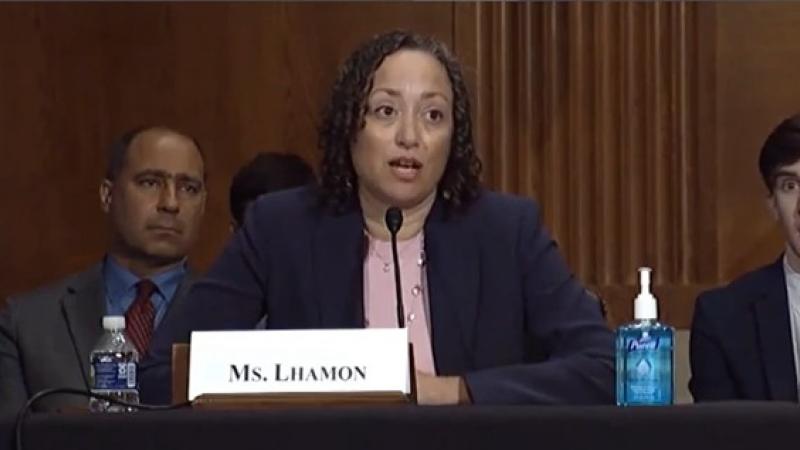IRS whistleblower to share allegations of DOJ cover-up in Hunter Biden case with Congress: attorney
Missouri Rep. Jason Smith "has identified that their committee on House Ways and Means is committed to thoroughly hearing these allegations, and so we look forward to a process," said whistleblower counsel Tristan Leavitt.
The legal counsel for an IRS whistleblower who has alleged that the Department of Justice has been working to undermine an investigation into Hunter Biden said Friday that he expects his client "will be able to share his allegations with Congress."
In late April, Just the News reported that an IRS whistleblower was alleging that federal prosecutors had engaged in "preferential treatment and politics" to prevent tax charges from being filed against the president's son.
The whistleblower's allegations appear to contradict sworn testimony from Attorney General Merrick Garland that Delaware U.S. Attorney David Weiss, who has been heading up the investigation, had full authority to pursue the case without fear of political interference.
Speaking on the "Just the News, No Noise" television show on Friday, Empower Oversight President Tristan Leavitt, who is representing the anonymous whistleblower, revealed that congressional leaders have received the allegations with interest and are likely to hold hearings to air his client's claims.
Missouri Republican Rep. Jason Smith "has identified that their committee on House Ways and Means is committed to thoroughly hearing these allegations, and so we look forward to a process," Leavitt told host John Solomon and cohost Amanda Head. "We are engaged with both sides of the aisle, and we anticipate that ultimately, our client, a very, very courageous and well-respected whistleblower, will be able to share his allegations with Congress."
In a letter to congressional oversight leaders outlining the allegations, co-counsel Mark Lytle wrote:
The protected disclosures: (l) contradict sworn testimony to Congress by a senior political appointee, (2) involve failure to mitigate clear conflicts of interest in the ultimate disposition of the case, and (3) detail examples of preferential treatment and politics improperly infecting decisions and protocols that would normally be followed by career law enforcement professionals in similar circumstances if the subject were not politically connected.
Head pressed Leavitt on the prospect of retaliation against the whistleblower, citing comments from IRS Commissioner Daniel Werfel, who told Congress recently, "I can say, without any hesitation, there will be no retaliation for anyone making an allegation or a call to a whistleblower hotline."
Leavitt warily noted the narrow wording of Werfel's assurance. "Well, the proof's in the pudding, right?" he said with a chuckle. "If you notice, even in his comment, he specifically said, anyone who makes a disclosure to a 'whistleblower hotline.' And the law that protects whistleblowers — going back to the Whistleblower Protection Act, 1989, and before that — is much broader than that.
"So IRS whistleblowers, just like other title 5 employees in the federal government, have protection for a broad variety of disclosures whether or not they go through the IRS' hotline. Certainly, we will be very vigorously watching to ensure that there is no further retaliation of our client.
"Again, he's doing the right thing for the right reasons, and we're going through the process that is absolutely the way Congress intended it to be followed. And so, you know, we'll be watching closely to see what the IRS does at this stage."
Seizing on Leavitt's reference to "further retaliation," Solomon asked whether his client had already suffered any negative consequences for coming forward.
"I'm not authorized to fully speak about that," Leavitt replied. "What we really want to focus on is the substance of the disclosures that he wants to make. That's the first thing foremost. He's not coming to Congress in order to pursue any personal agenda, and, really, he's setting aside any considerations about his own career."
He did, however, put down another marker signaling that the whistleblower's legal team will be on the alert for any signs of professional reprisals against their client.
"So, in the course of this, as with any whistleblower, we anticipate that his supervisors are aware of what he's doing, and when you have a situation like that, then it can sometimes have ramifications," Leavitt admitted. "So there will be more to come on that in the future. But for right now, we really just want to focus on ensuring he's able to get in to the relevant committees, and be able to share the information that is so significant."
Ben Whedon is an editor and reporter for Just the News. Follow him on Twitter.
















